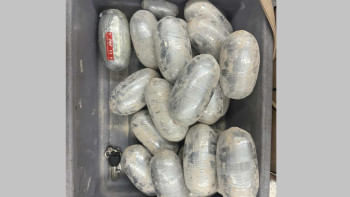Bleak future for Rohingya, as Dhaka seeks to tackle crisis

Both Bangladesh and the UN want to provide stable conditions in Myanmar for the Rohingya to eventually return. That seems unlikely any time soon.
"I consistently hear from Rohingya refugees that they want to return to their homes in Myanmar, but only when it is safe to do so," Nicholas Koumjian, who heads the UN's Independent Investigative Mechanism for Myanmar.
"Ending the violence and atrocities against civilians from all communities in Rakhine is critical for the eventual safe, dignified, voluntary and sustainable return of those that have been displaced."
Bangladesh has recorded a surge of refugees from Myanmar since early 2024, with 150,000 more Rohingya arriving.
In Rahkine, restricted access due to fighting has been compounded by worldwide aid cutbacks spearheaded by US President Donald Trump's freeze on humanitarian funding.
The World Food Programme -- which received nearly half its 2024 donations from the United States -- warned this month that 57 percent of families in central Rakhine are now unable to meet basic food needs.
In the camps, food too is a constant worry.
Each refugee receives a ration card worth about $12 a month. Kaisar, a refugee, listed what that buys: 13 kilogrammes of rice, a litre of oil, a handful of onions and garlic, and a packet of salt.
"It fills our stomachs, but there is no nutrition," he said.
"I have a three-year-old son. He needs milk, eggs, lentils, but we cannot afford them. Nutrition centres in the camps provide support to children under two. After that, we are left to struggle."
Education is the next looming hurdle, and Kaisar fears for his young son.
"Will he be able to study and get a job? Or will he spend his whole life as a refugee like me?" Kaisar asked.
He recalled how ordinary villagers in Bangladesh once handed him dry clothes and food after his escape. But beyond that generosity, the future looks bleak.
The violence that uprooted him still rages across the border, and Rohingya militants working with the Myanmar junta have tried to recruit refugees, according to camp residents, UN reports and analysts.
"We civilians have been continuously betrayed," Kaisar said bitterly. "Every side has used us as pawns."
For now, the father's appeal is simple: that Dhaka eases restrictions on education, to allow Rohingya children to attend regular Bangladeshi schools.
"At least allow our children to attend school," he said. "If they can stand on their own, maybe their future won't be as hopeless as ours."

 For all latest news, follow The Daily Star's Google News channel.
For all latest news, follow The Daily Star's Google News channel. 



Comments